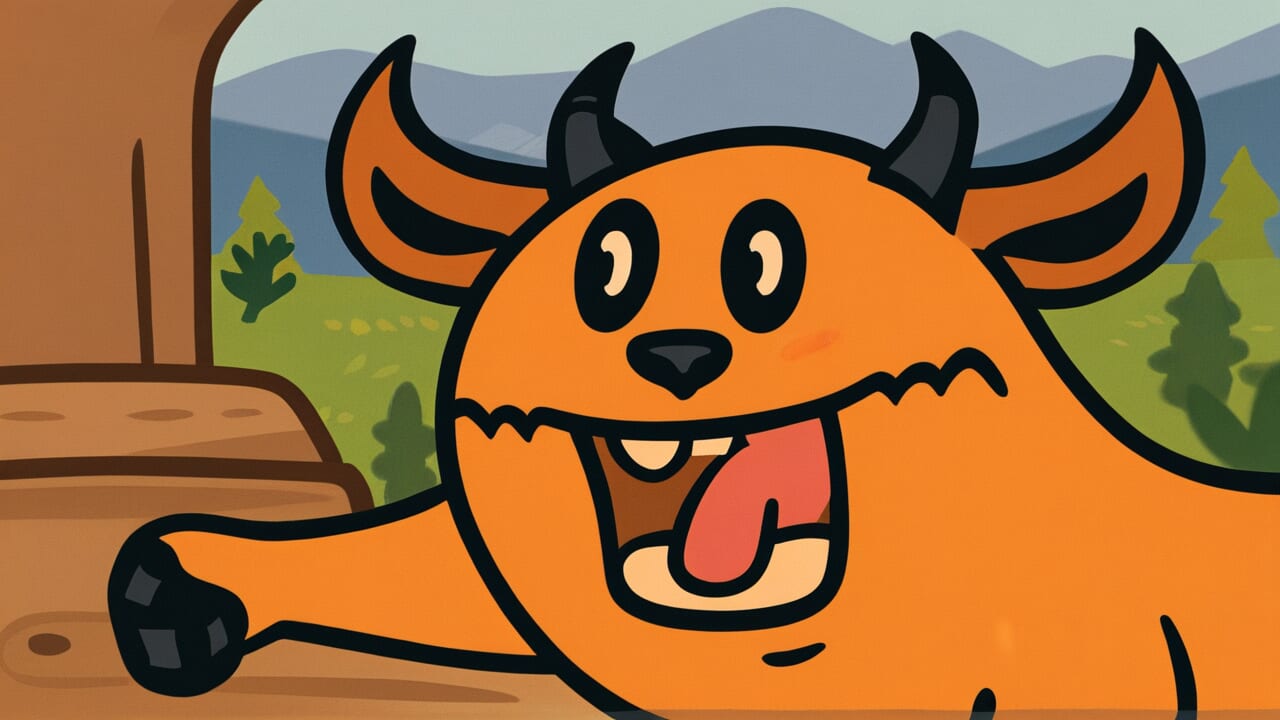How to Read “Those with horns have no upper teeth”
Tsuno aru mono ni wa uwaba nashi
Meaning of “Those with horns have no upper teeth”
“Those with horns have no upper teeth” means nothing is perfect. If you gain something, you lose something else.
Just as animals with powerful horns lack upper front teeth, no being possesses everything. This proverb teaches us that complete perfection doesn’t exist.
People often use this saying when talking about strengths and weaknesses. Even talented people have flaws. Even flawed people excel in other ways. The proverb shows us both sides of everything.
Today, it warns against demanding perfection. Everyone has strengths and weaknesses. That’s natural. We should accept this reality.
The proverb also teaches us not to focus only on others’ faults. We should notice their strengths too.
Origin and Etymology
No clear written record explains this proverb’s origin. However, the words themselves reveal interesting observations.
“Those with horns” refers to animals like cows, deer, and sheep. “No upper teeth” means they lack upper front teeth.
Ruminant animals actually have this feature. They have lower front teeth but no upper front teeth. Instead, they have a hard dental pad. They use this pad with their lower teeth to cut grass.
Ancient people noticed this through daily observation. Farmers and herders worked with animals constantly. They saw that horned animals lacked upper front teeth despite having impressive weapons.
From this fact, they discovered universal truth. Nothing in nature is perfect. Gaining something means losing something else.
They applied this wisdom to human society. Our ancestors showed remarkable insight. They drew deep life lessons from simple animal observation.
Interesting Facts
There’s a fascinating evolutionary reason why horned ruminants lack upper front teeth. Growing horns requires massive amounts of calcium and phosphorus.
With limited nutrients, these animals concentrated resources on horn development. Upper front teeth gradually disappeared. This proves the biological trade-off: gain something, lose something.
If you look inside a cow’s mouth, you’ll find a “dental pad” where upper front teeth should be. This isn’t a tooth, but it works perfectly.
The cow grips grass between this hard pad and lower teeth, then tears it away. The system functions well without actual teeth.
Usage Examples
- He’s excellent at sales but terrible at paperwork. Those with horns have no upper teeth, I guess.
- She’s incredibly athletic but struggles with studies. Those with horns have no upper teeth—nobody’s perfect.
Universal Wisdom
“Those with horns have no upper teeth” has endured because it addresses a fundamental human struggle. We constantly swing between wanting perfection and facing our imperfect reality.
This struggle often comes from comparing ourselves to others. We envy others’ talents. We focus on what we lack. These thoughts have troubled people throughout history.
But our ancestors discovered important truth through nature. Even animals with horns lack upper front teeth. Nothing possesses everything.
This realization must have brought great comfort. You don’t need to be perfect. Having flaws is acceptable. That’s how nature works.
The proverb also teaches humility. Even if you excel in some areas, you’ll lack in others. That’s why people need each other. We complement and support one another.
As humans, we seek completeness while living with incompleteness. This proverb teaches that accepting this contradiction brings true strength and happiness.
When AI Hears This
Building biological tissue requires enormous energy and calcium. These resources are always scarce in nature.
Growing one kilogram of horn requires about 8,000 kilocalories and over 200 grams of calcium in cattle. Meanwhile, tooth enamel is the body’s hardest tissue. It also consumes massive amounts of calcium and phosphorus.
Evolutionary history shows an interesting pattern. Species that developed horns lost upper front teeth. They evolved hard dental pads instead.
Cows and sheep grip grass with lower teeth. They press it against the upper hard pad and tear it away. This method is less efficient than teeth. But it’s a reasonable trade-off for defensive horns.
Research on deer shows that individuals with larger antlers experience faster tooth wear. Their nutritional status deteriorates more easily.
Biology calls this phenomenon “allocation trade-off.” Perfectly distributing limited resources to multiple functions is impossible. Gaining something always means losing something.
Deer antlers regrow annually. During this period, male bone density drops nearly 20 percent. They mobilize calcium from their entire skeleton to build antlers.
Evolution doesn’t aim for perfection. It seeks the minimum balance needed for survival. Horns or teeth. Attack or feeding. Nature has spent hundreds of millions of years carving this ultimate choice into living bodies.
Lessons for Today
This proverb teaches us the courage to accept imperfection. In today’s world, we see others’ highlights constantly on social media. Are we unconsciously demanding too much perfection?
What matters is using your strengths while acknowledging your weaknesses. Don’t try to excel at everything. Focus your energy on what truly matters to you.
If other areas fall short, that’s the result of your choice. There’s no shame in that.
This proverb also teaches kindness toward others. When you notice someone’s flaws, remember they have strengths elsewhere. Nobody is perfect.
Relationships where we complement each other’s gaps are truly rich and meaningful.
Your imperfection is part of who you are. When you accept this, you’ll become more tolerant of others’ imperfections too.
You’ll be freed from the tension of pursuing perfection. You’ll live more freely and comfortably.



Comments